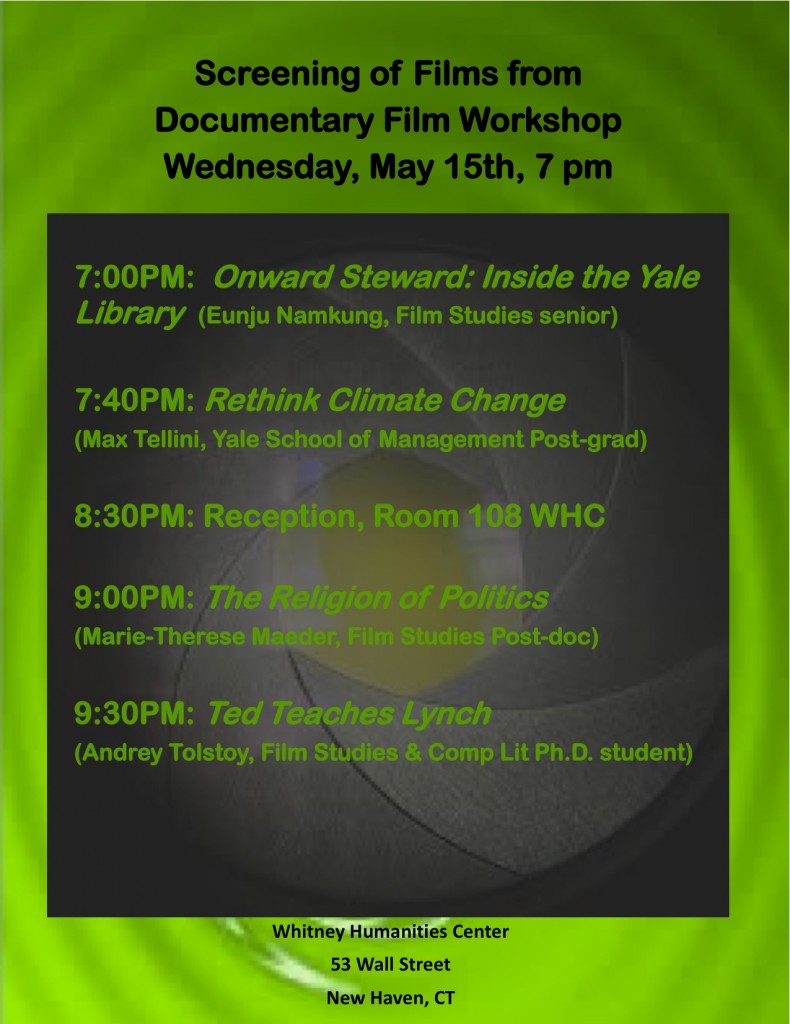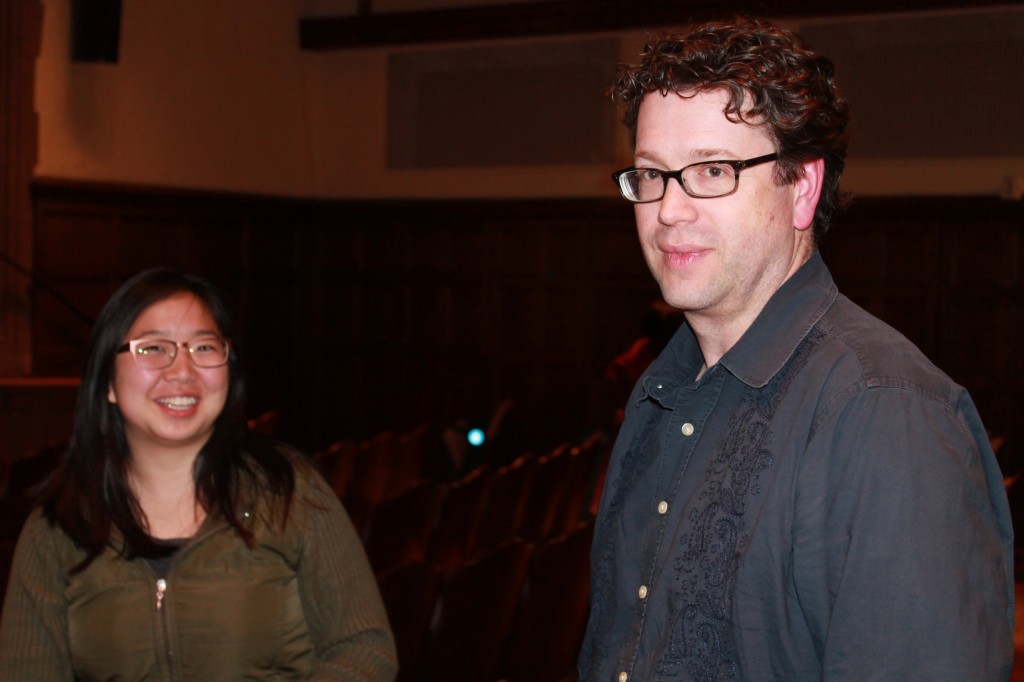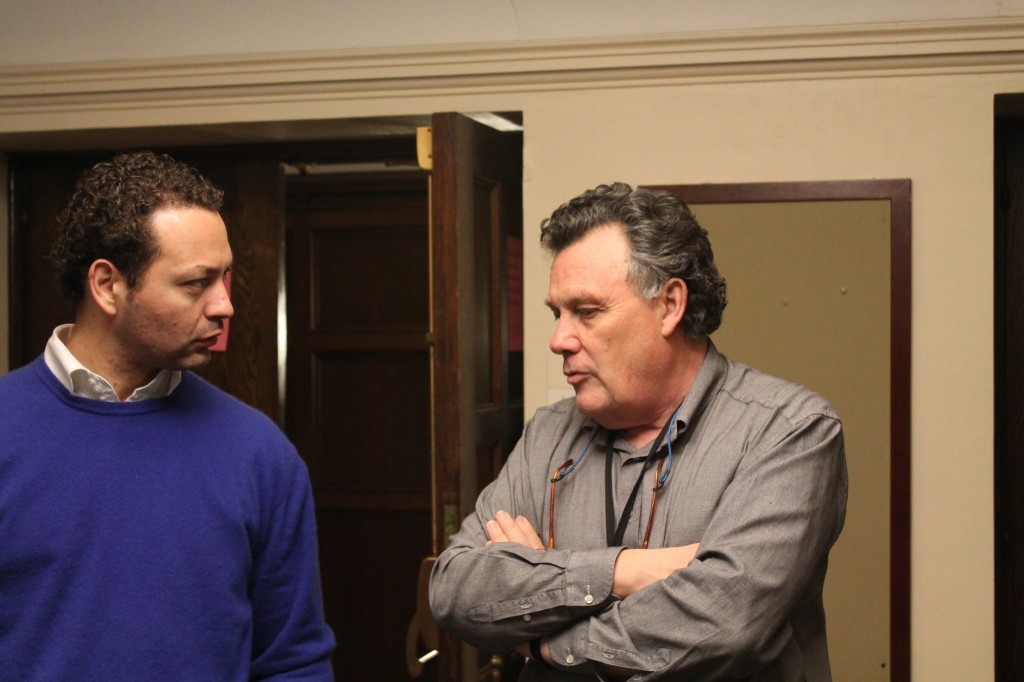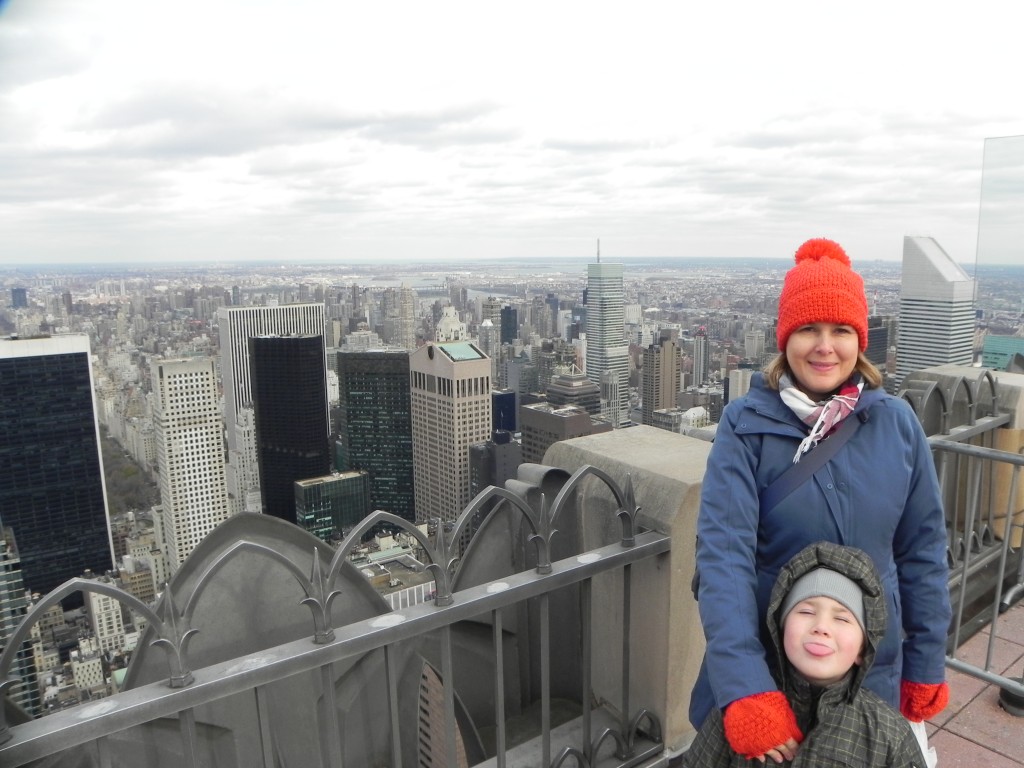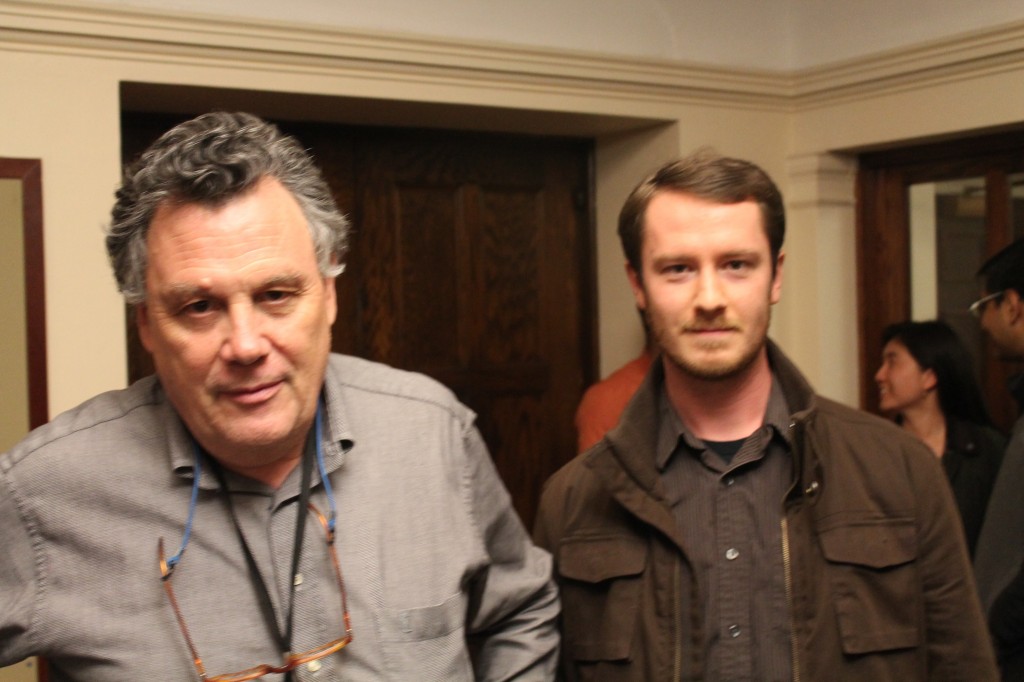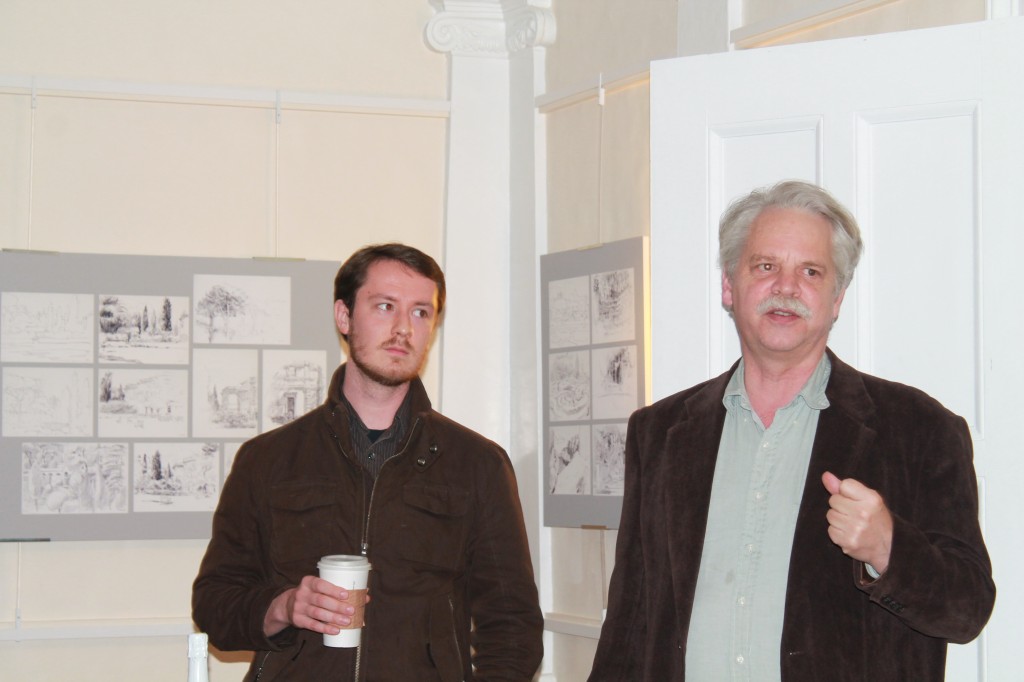This year’s iteration of Documentary Film Workshop had its own particular challenges. One of the students, Deno Blackburn, had been a real leader. He was not only the first to start filming his project on a jobs program but he helped many of classmates by acting as their cinematographer. In the spring, however, he was burdened by serious eyes problems which left unable to view and edit his footage for extended periods. Another classmate in the Art School’s MFA program ended up integrating her documentary material into an art installation. It was an impressive achievement but not within the normal mandate of the course. And so it continued. With a shorter reading period and exam week, students had difficulty finding the concentrated time in the editing room that was needed to complete their films, and our final class screening came after many students had departed for the summer.
Nevertheless, we screened four completed documentaries on the evening of May 15th with a celebratory reception between the first two and the last two films.
Eunju Namkung started the evening with Onward Steward: Inside the Yale Library. The Yale Library, under its recently appointed head Susan Gibbons, has been moving aggressively into new areas such as the adoption of scan and deliver. (One result: users have fewer reasons to go to the library itself.) Eunju interviewed a number of key figures, and the results illuminated the debate over the library’s future. She seemed always to be in the right place at the right time–the secret to documentary filmmaking–and got the goods. Eunju is planning to stream her documentary on line very shortly. When that happens, I’ll post a link here.
From its title, one might expect that Max Tellini’s Rethink Climate Change was made by someone from the School of Forestry and Environmental Studies, but Max was at Yale as a post-grad in the School of Management. Moreover, his documentary challenges the mindset of MBA programs. He shot much of the film in Hong Kong and Beijing, learning as he went along. I am still amazed that he could make this 60-minute documentary on a miniscule budget when twenty years ago it would have easily cost $250,000. The wonders of the digital. Max displayed a perseverance and determination that was very impressive.
And then we paused for some refreshments…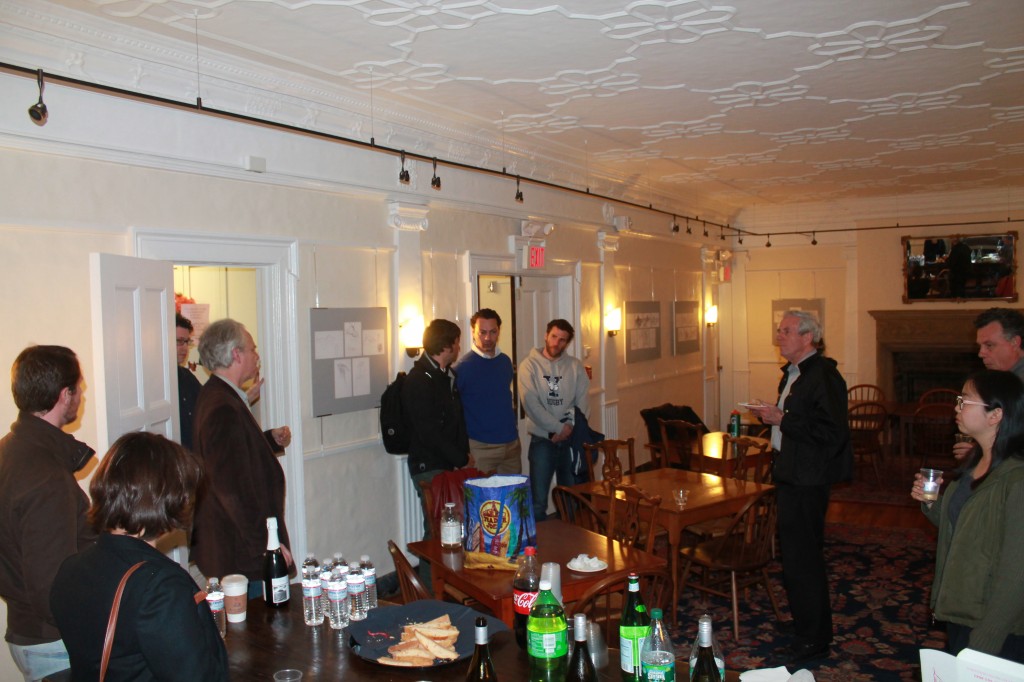 ***
***
Marie-Therese Maeder was a visiting post-doc from University of Zurich. She came to research issues of media and religion and to take Documentary Film Workshop. When she arrived MT wanted to audit my fall course on Media and US Presidential Elections, 1892-2012 instead. In fact, I urged her to do both, and the excellent result was The Religion of Politics: An Investigation into the 2012 US Presidential Election. MT interviewed a local Catholic priest, the pastor of a Black Protestant church and a Mormon bishop. Perhaps because she was a foreigner, those interviewed were remarkably frank with their opinions! The intensity of a campaign also has much to do with their statements as well.
Marie Therese was only here for the fall semester, but her film was not completed until February or March. Our screening was the first opportunity for students in the class to see what she achieved.
The evening ended with Andrey Tolstoy’s remarkable documentary Ted Teaches Lynch. To say that the film is “about” Ted Perry, Andrey’s undergraduate film professor at Middlebury College, misses the point. Ted may be the focus or perhaps more accurately the starting point, but Andrey’s documentary is about the experience of film viewing––particularly viewing David Lynch’s films––and what that experience can mean. Francesco Casetti, the Director of Graduate Studies for Film Studies, had not hidden his skepticism about Andrey’s undertaking, but by the end of the evening he had been convinced that this had been a productive endeavor.
Indeed, if all goes as planned, Andrey will serve as a Teaching Assistant next year for the class. And the suggestion was Prof Casetti’s (thanks Franceasco!)
Graduate students and post-docs such as Marie-Therese, Max and Andrey are engaged in efforts of documentary scholarship that complement their written work. We are increasingly in an era of multi-modal scholarship. The process of filmmaking, which was difficult and expensive when I was a graduate student, has become much, much easier and less costly. Energies can be focused much more on intellectual concerns.

After the screening: Max Tellini, Eunju Namkung, Maria Threese Serana, Charlie Musser, Andrey Tolstoy.
Well while the students have been making their films, I have been working with my collaborator Threese Serana on a film of our own. We can’t agree on a title yet: I want to call it Visa Wives while she wants to call it Filipino Wives. Presumably what appears after the title is what counts.
And yes, we all occasionally got Marie-Therese and Maria-Threese confused.

